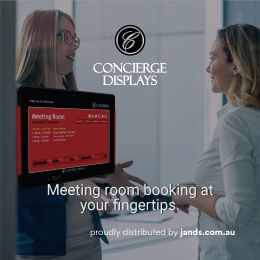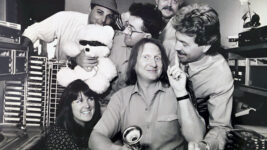Subscribe to CX E-News
by John O’Brien.
If nothing else, life in the high intensity, prolonged stress environment of live production is character building. Prosper at this and you’re good for anything. However, it can be difficult to sell this as a virtue if you transition to another career or industry.
I’ve just finished Stuart Coupe’s excellent book “Roadies” and it got me to thinking about what I got from roadie life. Primarily, it fed me for many years and I had some great times while learning a lot about myself and others. Cool.
I’ve made lifelong friends. The tech and general practical skills learned on the road were an invaluable platform for my later career. All good. Most valuable though are the traits of inner resilience, perseverance and calmness under pressure fomented while doing all the crazy things that are needed to get a show on day after day.
A quandary unique to those moving from production to corporate or other roles is convincing the interviewer that being involved with or getting 28 acts on and offstage in 90 minutes is a good sign of your temperament, dedication, adaptability and ingenuity and just how that will benefit their organisation.
Sometimes they’ll get it, sometimes not. They may think that you are just showing off, so you will have to adjust your pitch to give concrete examples of your attitude and aptitude.
It’s up to you to gauge what the prospective employers are after and tailor your approach to suit.

Staying in a closely related area like a production house is the easiest step because you keep working with the same gear and people without having to explain yourself too much. Further afield – careers in corporate AV, film / TV, installs or distribution are options for keeping current technical competencies alive while learning new ones.
It might be a bit trickier to get in the door but chances are that you will have mutual interests or contacts. If you move to a completely different industry, your hard tech skills may not be of much direct use. Mixing a cake or a batch of concrete require radically different techniques to those for mixing a band.
The underlying dilemma is the difference between ‘soft’ and ‘hard’ skills. Hard skills such as stage management, lighting rigging or audio console operation are relatively easy to qualify but don’t necessarily transfer well to other job descriptions.
Certificates, endorsements or tickets – you either have them or you don’t, so list these on your resume (but don’t make any up!).
Hybrid skills like budget or people management are less easy to define precisely but are still valuable assets worth highlighting, particularly if you can show how they relate to the role that you are after.
The most difficult to sell skills are the soft ones. Problem solving, trouble shooting, time management, efficiency, flexibility, teamwork, independence, lateral thinking … the list goes on. For mine, these are the greatest strengths that you will get from live production work. Unfortunately, it’s tough demonstrating the depth or value of those soft skills and attitudes to folk who have come through more linear or traditional career paths.
A great illustration: I applied for the same technician role twice. First time, the interviewer I knew socially but it was awkward at best. My approach meant little and another candidate won out. 6 months later, they moved roles and the job came up again. This time I met with the new tech manager and he asked what I knew about video. “Not much, but I know that you need to get signal into those black boxes, it will get altered and you then get the correct signal to the next point.” His reply: “When can you start?”

A gig veteran himself (R.I.P. Syko), he saw that my general attitude was more important than any explicit aptitude with their gear.
One of the best skills you can demonstrate is that you don’t need to know everything but do know how to find out how to do what you need to, when you need to. You need to be adaptable – a trait sharply honed in live work – but you need to demonstrate that too. That means tailoring your resume and approach to each job you apply for.
As an interviewer, I often eliminated CVs from the shortlist if they were cookie cutter with little effort made to personalize the application for the particular job. Do some research on the company you are pitching to – it shows you care enough to be worthy of their team.
Some recruiters see listing soft skills as resume killers but there are competing schools of thought in this area so you’ll have to wing it there. I can confirm how difficult it can be to explain to the uninitiated HR rep just how valuable your soft skills and resilience are.
A good way to get around this predicament is to illustrate some examples of how you solved a particular problem or overcame a time critical issue in a high-pressure situation. Show them a measurable accomplishment and prove those skills.

One personal example that I’ve used in interviews is resolving a critical DMX failure 10 minutes before the headline act was due on stage. With a packed house, no way of getting a new cable to FOH and no lines free on the audio multi- I grabbed the house dimmer and ancient theatre desk, smashed in handfuls of plugs from the touring rack, setup the board side of stage, ghosted up every channel to work out what had ended up where and gave the stage manager the thumbs up with 30 seconds left.
Phew … a few deep breaths and we are GO.
I use this example not to show off (and they only get the truncated version) but to highlight calm problem analysis and decision making during a highly stressful time critical situation.
Be careful not to big yourself up too much though. Just because you were a runner on a show does not make you a showrunner in the TV sense. Honesty and humility can be just as important to a prospective employer as any assertiveness. There’s a big difference between confidence and cockiness so keep it real and be yourself.
As a hirer – above everything else, I always looked for personal integrity in the candidates and was always rewarded with good workers.
So, what else did I get from roadlife? Boxes of tour shirts and gig ephemera – a dubious form of superannuation at best. Some desk tapes of questionable legality and endless carefully anonymous war stories to tell the easily impressed (or bore my dearest – who’s heard them all by now!) A perverted sense of humour (or was that a prerequisite)?
Levity aside, moving from live work into other areas taught me how to sell myself as someone who can analyse a problem, form a solution and execute it in a timely manner, all with a smile. I may be jack of all trades but I’m now a master at transitioning between them and part of my new trade is telling you all about it! Thanks road skills…
I firmly believe that life on the road helped hone my greatest professional assets to a level rarely found in other industries. The puzzle has been selling that prowess – an ongoing lesson to this day. When your time comes, hopefully you can sell yourself well too.

Subscribe
Published monthly since 1991, our famous AV industry magazine is free for download or pay for print. Subscribers also receive CX News, our free weekly email with the latest industry news and jobs.












